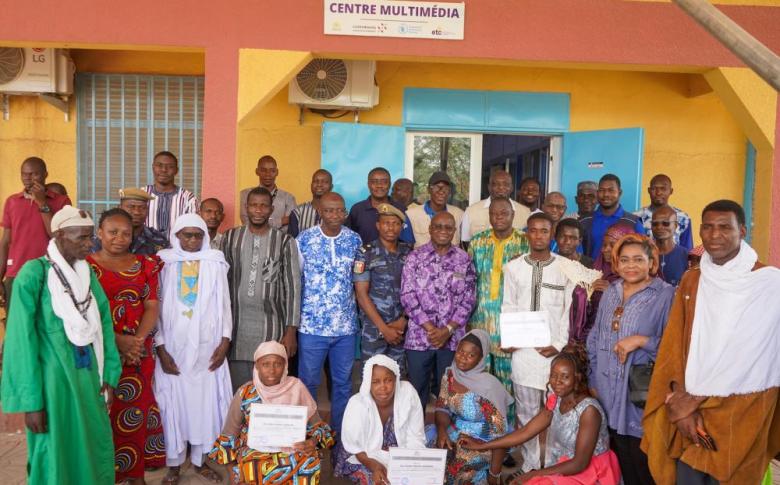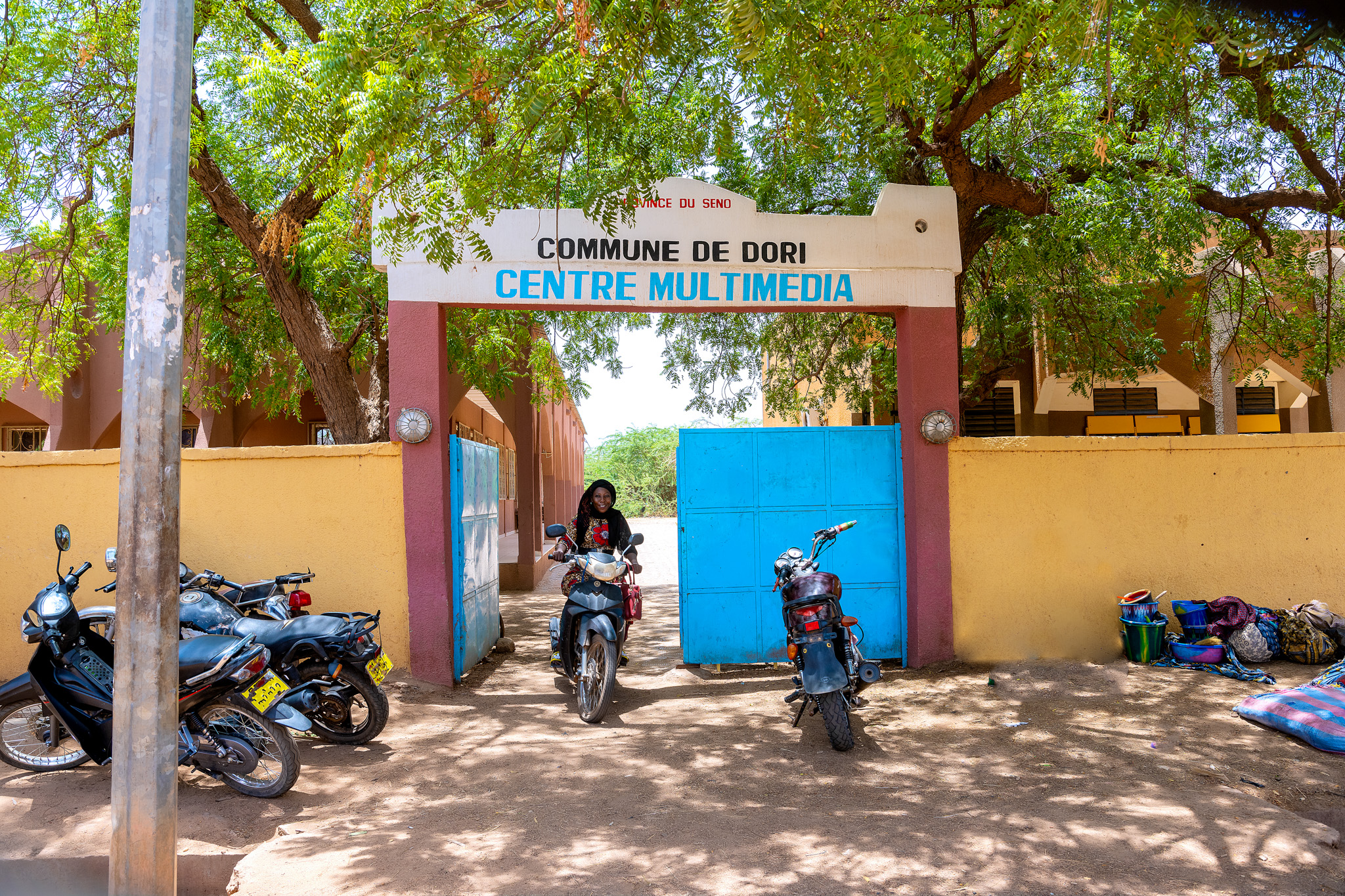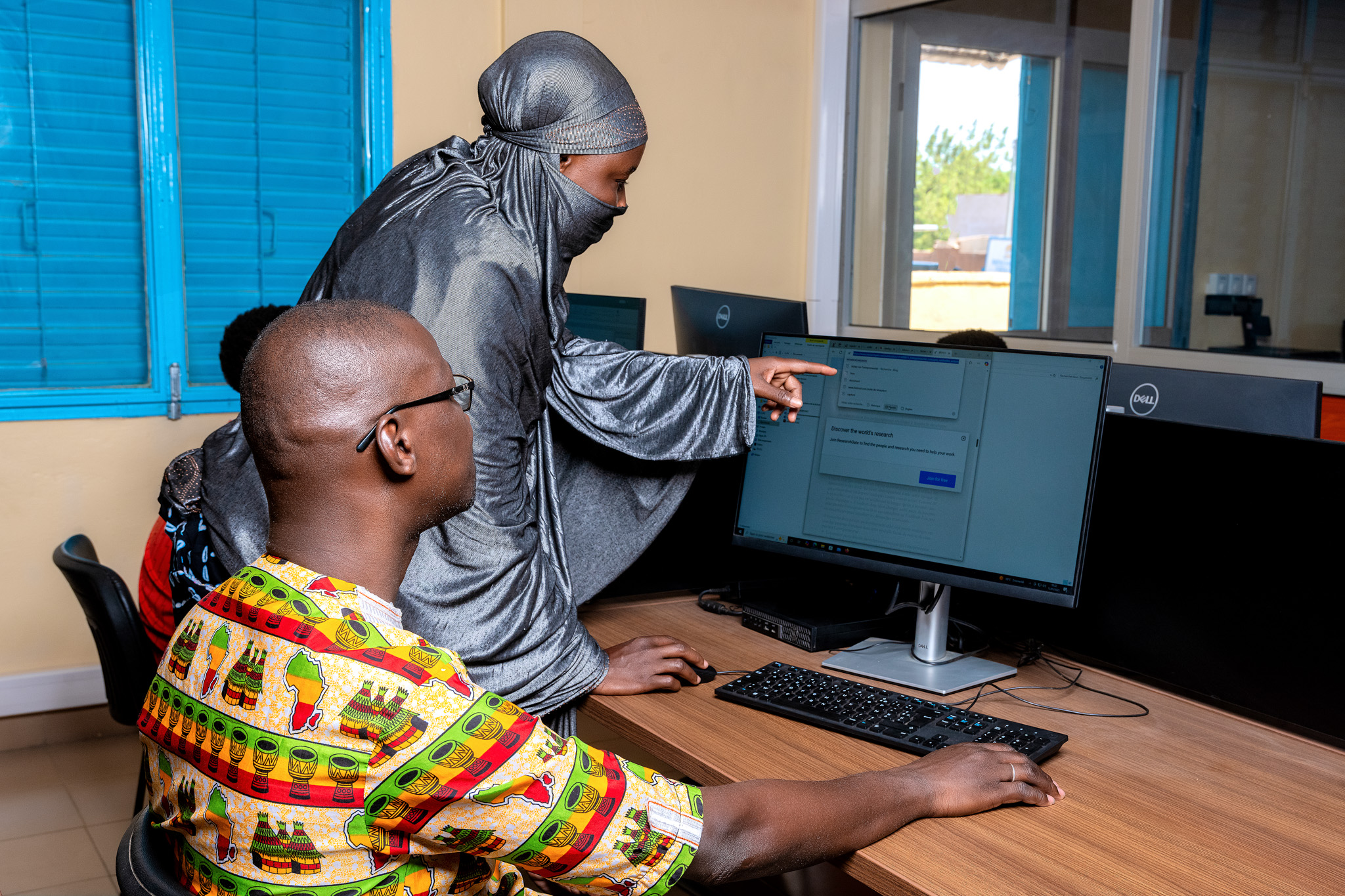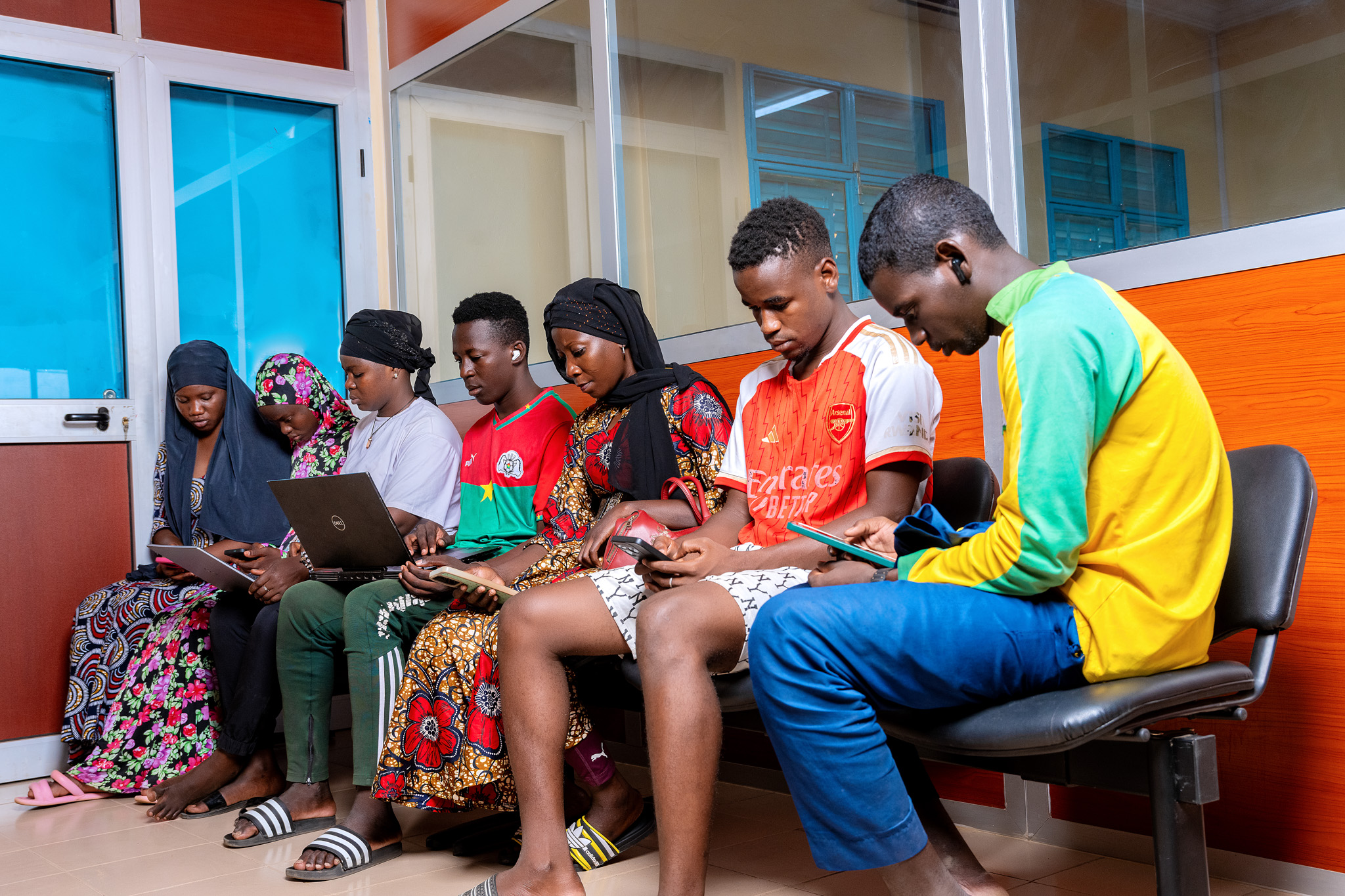From Assistance to Ownership in the Sahel: Dori’s Digital Learning Centre

This story originally appeared on WFP Digital
-------------------------
By Elizabeth Millership
Nestled in Burkina Faso’s “tri-border zone” with Mali and Niger, the town of Dori stands at the heart of the Sahel’s unfolding humanitarian landscape. Once home to around 50,000 people, Dori’s population has tripled since 2020 as waves of internally displaced persons (IDPs) seek refuge from escalating insecurity in rural areas. Today, the town hosts an estimated 180,000 IDPs—making it the largest displacement hub in the region.
Against a backdrop of displacement, insecurity, and limited infrastructure, a new chapter began on 22 May 2025—one where connectivity as a form of aid became a reality, driven by innovation, community spirit and global partnership.
On this day, community members gathered with eager anticipation to reconnect to a vital lifeline—access to communication, long disrupted by crisis. They were joined by local leaders, regional authorities and international partners to officially open the Dori Digital Learning and Multimedia Centre: a solar-powered hub designed to bridge the digital divide and empower the community.

More than just a building, the Centre is a vibrant symbol of partnership and possibility. It is the result of close collaboration between the WFP-led Emergency Telecommunications Cluster (ETC) and its long-standing partners, emergency.lu and the Government of Luxembourg. They contributed not only critical funding but also hands-on expertise, with engineers and technical staff working alongside local teams in Burkina Faso.
The WFP Burkina Faso country office also played a key role, helping to secure long-term ownership by the Special Delegation of Dori’s Mairie (Mayor’s Office)—a step that ensures the Centre’s sustainability under local leadership.
Together, the partners envisioned a space where people—especially those whose access to digital communication had been disrupted by crisis and displacement—could regain vital connectivity, restart communication and continue their journey toward acquiring digital skills and new opportunities.

With Dori’s power infrastructure often unreliable, the Centre was purposefully designed to run entirely on solar energy—a significant achievement in such a hard-to-reach area. Today, it offers essential services that were once out of reach: high-speed internet, computer literacy training, mobile charging stations, a digital library and a welcoming internet café.
A physical library also creates a sanctuary for learners, while dedicated training spaces host workshops on computer basics and office software—an effort that began in late 2024 and has already drawn dozens of eager participants, the majority of whom are young adults from the local community.
Since its soft launch in August 2024, the centre has welcomed over 4,000 visits—a number that continues to grow. Today, it receives a peak of more than 500 visits monthly, with Wi-Fi access and the cybercafé ranking as the most utilized services. Though men currently make up the majority of users, efforts are already underway to boost participation from women, older adults, refugees and IDPs.
The Learning Centre is not just a space for digital exploration—it’s a model of sustainable development. Its reliance on solar energy addresses the chronic power outages that challenge many parts of Burkina Faso, and its management by local authorities ensures that it remains a truly community-led initiative.

Importantly, feedback from community surveys shows that 95% of users report improved access to critical services, although suggestions such as better technical support, improved accessibility, and longer opening hours remain areas for future enhancement.
This project is more than a milestone; it is a symbol of what is possible when international cooperation meets local commitment. By providing reliable digital access, fostering skills development, and creating inclusive spaces for learning and growth, the Dori Digital Learning Centre is helping transform lives—one connection at a time.
As the ETC and its partners look ahead, the focus will remain on strengthening infrastructure, broadening access and deepening engagement with underrepresented groups.
The message from Dori is clear: with the right partnerships, even the most remote and challenged communities can be empowered to thrive in a digital future.